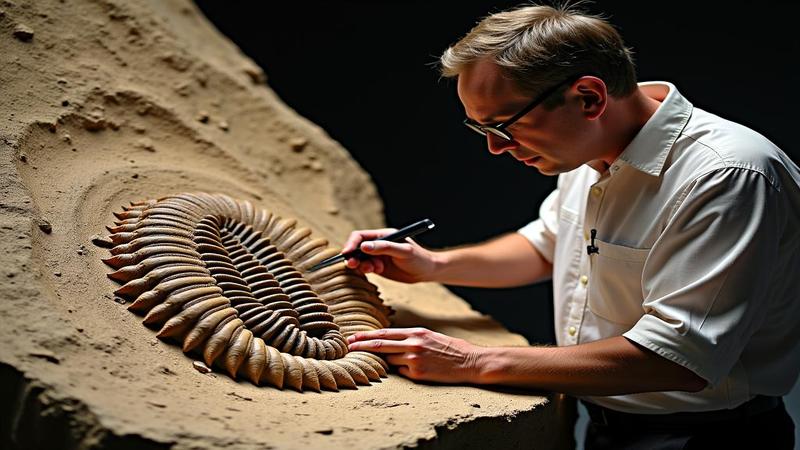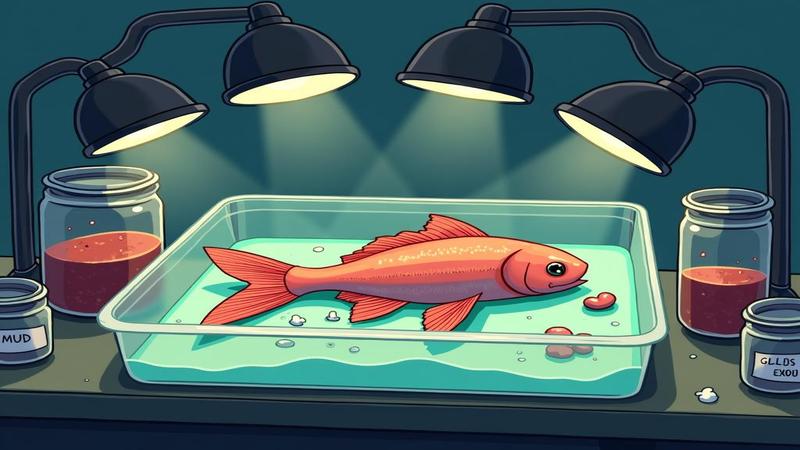New Study: Fossils Are Animals Who Filed the Paperwork

Earth’s newest study confirms what every rock has been whispering: fossilhood is less a destiny and more a reservation. Some creatures get a table for the next 500 million years, others aren’t on the list, and the maître d’ is sediment wearing a monocle.
The lead author, a paleontologist with the energy of a librarian at a rave, summarized it thus: “Hard parts, low oxygen, fast burial.” Then he added, “We also controlled for chaos, petty gods, and the ocean’s habit of behaving like a blender.” The blender declined to comment, because it was busy.
It turns out evolution can give you wings, gills, venom, bioluminescent romance lamps—but if it forgets to include a mineralized exoskeleton, history will treat you like a deleted scene. Cartilage is apparently nature’s Post-it note: inspiring, useful, and gone the moment you need it.
To demonstrate, the team produced a sober diagram showing a line labeled “Hope for Jellyfish” gently sloping into a rectangle titled “Mud, Eventually.” It’s the kind of diagram that tidies up what reality refuses to, like a spreadsheet for a hurricane.
So why do most animals simply vanish? Because the universe has a composting fetish. Bacteria throw a dinner party, the weather provides knives and forks, and relatives stampede through your remains like they’re late for the Cretaceous. Meanwhile, the ocean keeps insisting it’s a washing machine on the “obliterate” cycle.
The study notes that surviving into rock demands outrageous privilege: calcium credentials, quick burial by sedimentary staff, and the social capital to avoid oxygen. Influencers have already pivoted to #AfterlifeOptimization, with sponsored videos hawking the DIY fossilization kit and promising “From flesh to legend in three easy strata.”

Soft-bodied animals are furious, or would be if they weren’t now interpretive smears. “We contributed everything to ecosystems and got paid in invisibility,” said a representative cephalopod, speaking through a historical reenactor with hand puppets. The bivalves responded by closing quietly and living forever like smug filing cabinets.
Meanwhile, deposition environments play favorites. Swamps hoard secrets, deserts exfoliate you into rumors, and beaches are just conveyor belts to oblivion with better lighting. The rare anoxic lagoon is basically witness protection for squids.
Museums are responding with an exhibit called “We Swear There Were Others,” featuring silhouettes of vanished lineages, a smell of damp apology, and a gift shop that sells acid-free specimen storage boxes for your feelings.
Methodologically, the paper is very adult. The authors buried piglets, chicken bones, and their egos in tubs of simulated seafloor, then measured decay with a caliper that sighed. Afterward they admitted their confidence intervals are “robust but haunted.”
Policy recommendations include National Sediment Insurance, a public option for shells, and tax credits for rapid burial. There’s also a bipartisan proposal to unionize mud so it stops playing favorites with trilobites who “know somebody in limestone.”
In the end, the message is clear: history isn’t written by the victors, it’s written by the calcified. If you want to be remembered, develop a shell, fall into an oxygen shortage, and ask to speak to the sediment manager. Failing that, file the paperwork—and keep your receipt, because returns are only accepted in stone.
